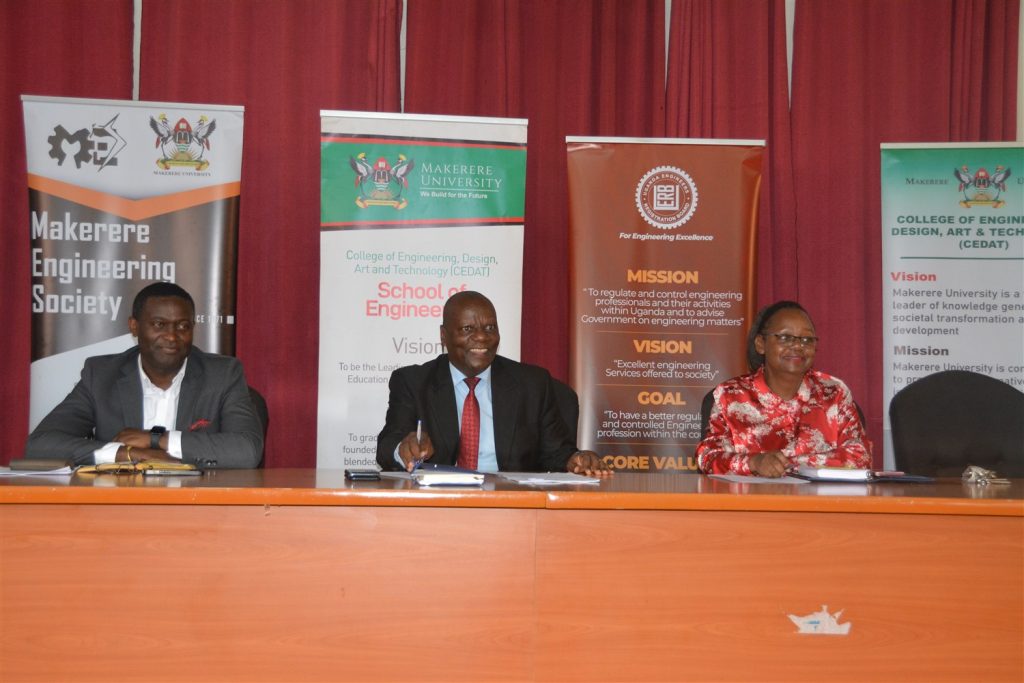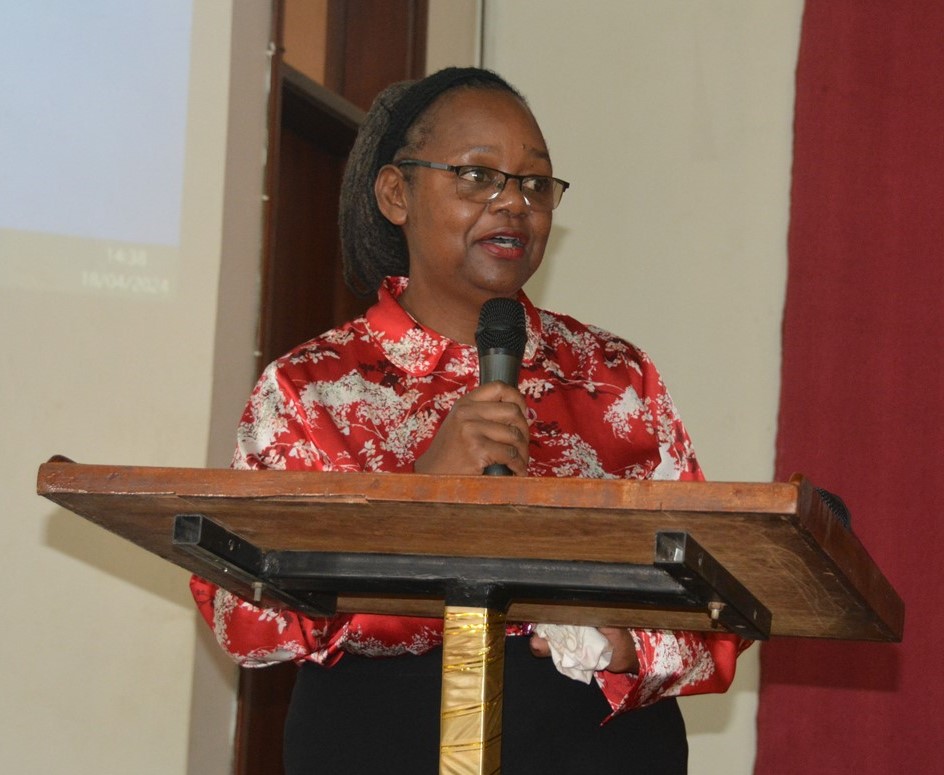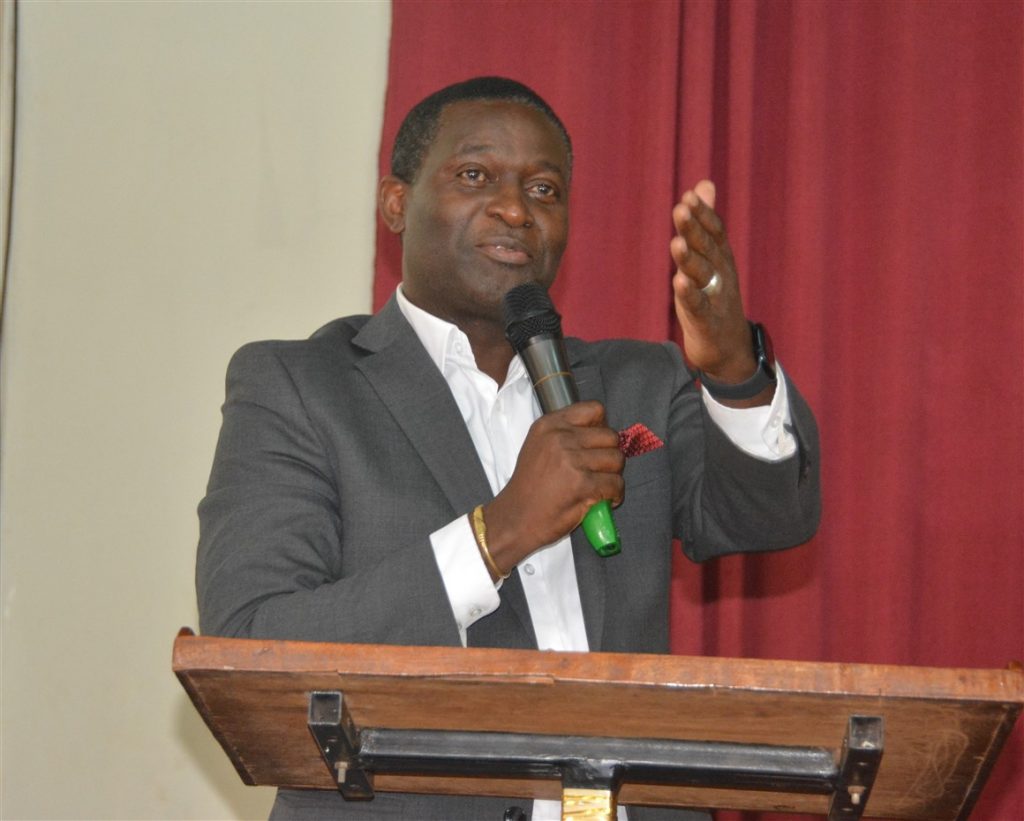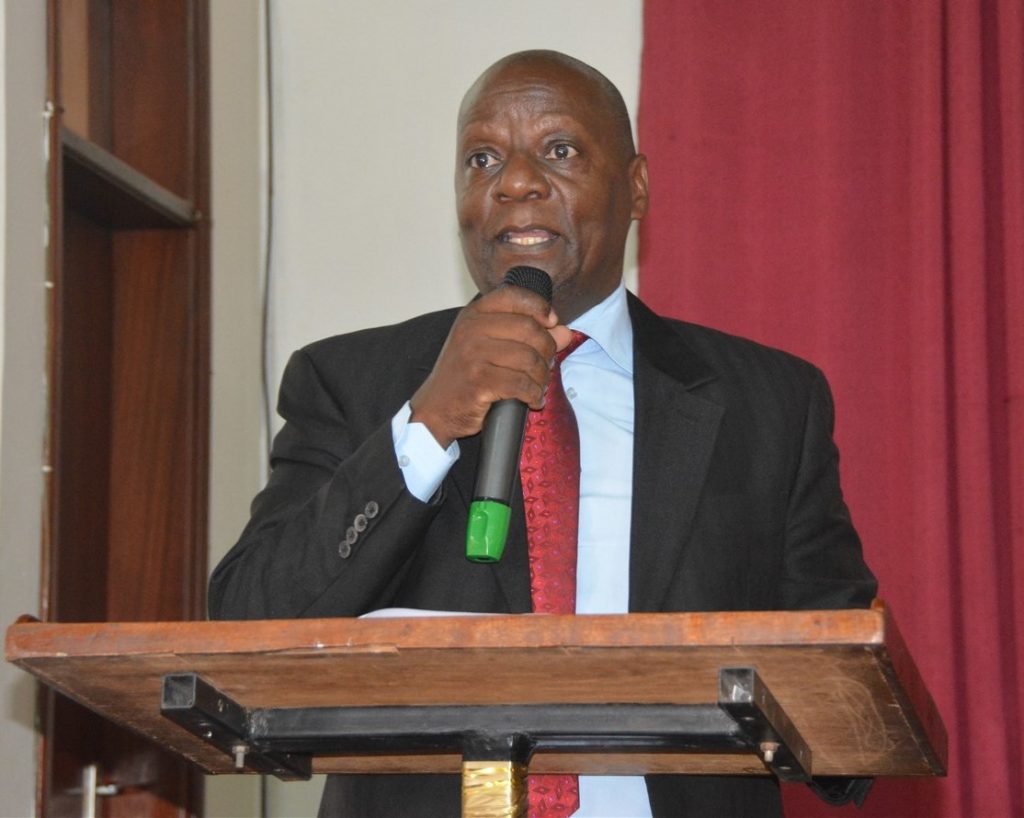Makerere University Engineering staff who are not Registered Engineers have been urged to utilize the existing opportunity availed through a window specially created by the Engineering Registration Board (ERB) for Engineers in the Academia.
The Engineering Registration Board has come out to enlist the registration of Engineers in academia, who even though impart knowledge and skills to the engineers, many of them are not themselves Registered Engineers.
During an outreach visit to the College of Engineering, Design, Art, and Technology (CEDAT), Thursday 18th April 2024, a team from the Engineering Registration Board interacted with Makerere University staff in the engineering field drawn from the Electrical Engineering, Mechanical Engineering, Civil Engineering, Agricultural Engineering, and Software Engineering among others.
Assoc. Prof. Dorothy Okello, the Dean of the School of Engineering at CEDAT said the academia’s contribution to the engineering sector is unique and the way they are assessed ought to be unique. We promote student membership in the Uganda Institution of Professional Engineers (UIPE) to enable them to appreciate the importance of belonging to professional networks, she said. Engineering attracts the best brains in the country but the challenge was how to convert them to the best contribution to developing the country. She also pointed out that Engineering was a core sector of the development agenda of the country, and that if the academia delivers as per expectation, they must be recognized as engineers based on their output and contribution. One way to enhance our professional status is through getting registered by the Engineers Registration Board, she said.
ERB’s Eng. Dr. Isaac Mutenyo said although over Two Thousand Engineers are churned out every year from several institutions, the Engineers Registration Board was registering very few. Our main responsibility as a board is to confirm that the people practicing engineering are competent. He however noted that since 1969, the Board has 1800 registered engineers. He said technicians were out on the field working but without belonging to any supervisory body to serve as a mantle of professionalism
While recognizing the affirmative action drive spearheaded by Asoc. Prof. Dorothy Okello that brought on board more females in the profession, Eng. Dr. Isaac Mutenyo said ERB takes cognizance of the great contribution made by the academia which group teaches the engineers. Lecturers do a lot of things but few get recognized which is a concern. He said the Board at ERB agreed to change the registration procedure to have many people registered which will in turn bring many more professionals to the pool of engineers and avoid overload on a few registered ones which he said, was a disservice to the country.
We want to simplify the registration process without compromising the quality. The Board through its committees is working hard to put in more effort to register as many people as possible. We are here to recognize you as a special category involved in research, training students, and also in practice. You have taught so many engineers, giving them skills and thereafter they go out and register when you are not registered, he observed while addressing the participants that attended the outreach.

Eng. Dr. Isaac Mutenyo said they realized the procedure was focused on only those engineers involved in designing things, but came to appreciate that the academics with the work they do were at par with the rest of the practicing engineers. He said their visit to the university was to encourage staff to embrace the registration that also targets technicians and technologists because what was applying to the engineers was soon getting to them as well.
In terms of creating awareness among students about the need to register, he proposed that awareness sessions be included in the curriculum at the first and fourth-year level to enable the students to appreciate that for them to be called engineers, they had to be registered well before they get into the field.
Eng. Christopher Tumusiime a board member said ERB introduced the registration procedure because all the professionals were products of the institutions of learning which have been instrumental in nurturing them. Although for one to be called an Engineer, one should have a degree in engineering, many in the academia were not registered engineers because the procedure was not favorable. He said the procedure clearly shows that engineers who are not in construction, the factory, or telecommunications can also register.
Eng. Christopher Tumusiime said whereas others in medical or legal professions go to institutions after their first degree, the engineer goes to work under the supervision of an engineer for at least two years. He said this pre and post-pupilage was an indication that one did some engineering guided and supervised by an engineer.
For those in academia who after the first degree, the master’s, and PhD, the Board saw it fit to make the process as clear as possible through the guidelines for the registration of engineers in academia and other research fields. These among other things provide that one did some work in curriculum development, course development, and delivery as well as supervision of at least two engineering master students, practical, research, or technical works in engineering laboratories or workshops, presentation of a career report detailing education background, courses taken, challenges related to the profession, research papers, industrial training experience, and membership in professional bodies. He explained that somebody at the level of dean or higher was to do the vetting. He explained that currently to qualify for ERB registration, they must be registered with the Professional Engineer Board but as a member.

During the plenary discussion, it was realized that the process of registration of the academics with ERB mirrors the existing promotion procedure at the University. The technicians who are more concerned with work would require a career report assessment to review competence.
Also emphasized were the importance and benefits of getting registered including compliance with the law, and having a common voice as engineers. It was emphasized that ERB as an arm of the Government regulates the operation of engineers. The benefits include protection, gaining a higher bargain to operate in the field, serving as a point of reference, and widening one’s space of opportunities.





